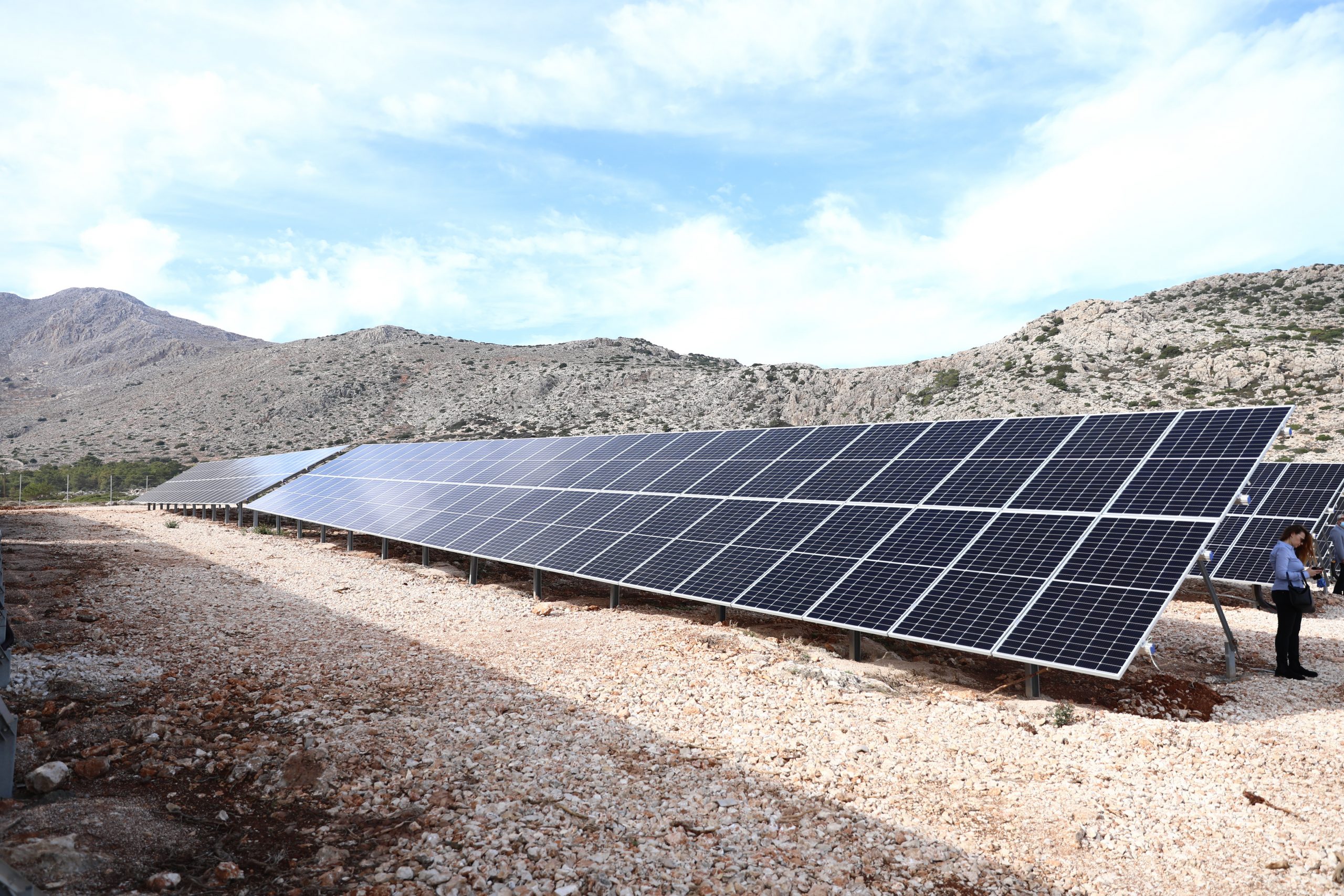
Israel is looking for ways to increase the penetration of Renewable Energy Sources into domestic energy consumption, seeking to accelerate its plans to reduce greenhouse gas emissions.
One of the issues, however, that Jerusalem has to face is the lack of space for the development of RES projects in its territory, although the country’s solar potential is rich. The densely populated areas of the country make it difficult for the Naftali Bennett government to achieve climate neutrality by 2050 as it is not easy to build photovoltaic parks in Israel.
According to a Bloomberg report, the director general of the Prime Minister’ office Yair Pines announced that Israel is in talks for possible joint projects in Jordan, Greece, Cyprus, and other countries. The progress of these projects of course depends on the development of appropriate transportation and storage systems.
According to OT.gr sources, the Athens-Jerusalem talks on the development of joint projects between Israeli and Greek companies in Greece, acquired substance after the signing of the memorandum between Greece – Cyprus – Israel on the underwater electricity interconnection of the three countries. It is recalled that a relevant agreement has been signed between Greece and Egypt.
From vision to reality
According to Bloomberg, Pines noted in statements that Israel will provide technological know-how to partners. “Our neighbors have a lot of open land, something we do not have. We have the technology,” Pines said in an interview in Jerusalem. “It makes sense for this vision to become a reality in the coming years.”
Israel announced last month its strategic plan for zero carbon emissions by 2050, and Prime Minister Naftali Bennett has promised to develop green infrastructure as well as carbon capture and storage technology to help meet those goals. After years of slow progress in renewable energy, Israel now aims to triple production to 30% of electricity consumption by the end of the decade.
To achieve this goal, Bennett instructed officials to identify and remove regulatory barriers to start-ups working on environmentally friendly technology. The government will also allow companies to use national infrastructure, such as military bases and hospitals, as testing grounds for their technology, with the aim of accelerating growth.
The Israeli government, according to Bloomberg, is also considering helping green tech companies struggling to raise funding by matching investment plans with other countries or leveraging ties with big investors such as The Bill & Melinda Gates Foundation.
Latest News

WTTC: Travel & Tourism to Create 4.5M New Jobs in EU by 2035
This year, international visitor spending is set to reach 573 billion euros, up by more than 11% year-on-year

IMF: US Tariffs Shake Global Economy, Outlook Downbeat
IMF slashes global growth forecast to 2.8% as U.S. tariffs create uncertainty and ‘negative supply shock

First Step Towards New Audiovisual Industry Hub in Drama
The project is set to contribute to the further development of Greece’s film industry and establish Drama as an audiovisual hub in the region

Airbnb Greece – Initial CoS Ruling Deems Tax Circular Unlawful
The case reached the Council of State following annulment applications filed by the Panhellenic Federation of Property Owners (POMIDA)

Mitsotakis Unveils €1 Billion Plan for Housing, Pensioners, Public investments
Greek Prime Minister Kyriakos Mitsotakis has announced a new set of economic support measures, worth 1 billion euros, aiming to provide financial relief to citizens.

Alter Ego Ventures Invests in Pioneering Gaming Company ‘Couch Heroes’
Alter Ego Ventures' participation in the share capital of Couch Heroes marks yet another investment by the Alter Ego Media Group in innovative companies with a focus on technology.

Corruption Still Plagues Greece’s Driving Tests
While traffic accidents continue to claim lives on Greek roads daily, irregularities and under-the-table dealings in the training and testing of new drivers remain disturbingly widespread

Pope Francis Died of Stroke and Heart Failure Vatican Confirms
As news of the official cause of death spread, tributes poured in from across the globe. The 1.4 billion-member Catholic Church is united in grief, remembering a pope who championed inclusion, justice, and compassion

Increase in Both Museum Visits, Revenues for 2024
As expected, the Acropolis was the top archeological site in the country, followed by Sounion, Mycenae, the ancient theater of Epidaurus, and Vergina in northern Greece

Where Greece’s Tourists Come From: A Look at 2025’s Top Visitor Markets
The United Kingdom continues to hold the top spot as the largest source of incoming tourism, with 5.6 million seats booked for Greece this summer — up 2.2% from last year. This accounts for 20% of all international air traffic to Greece
















![Ξενοδοχεία: Μεγάλο το ενδιαφέρον για επενδύσεις στην Ελλάδα – Η θέση της Αθήνας [γραφήματα]](https://www.ot.gr/wp-content/uploads/2025/03/Athens-hotels-90x90.jpg)
























 Αριθμός Πιστοποίησης
Αριθμός Πιστοποίησης